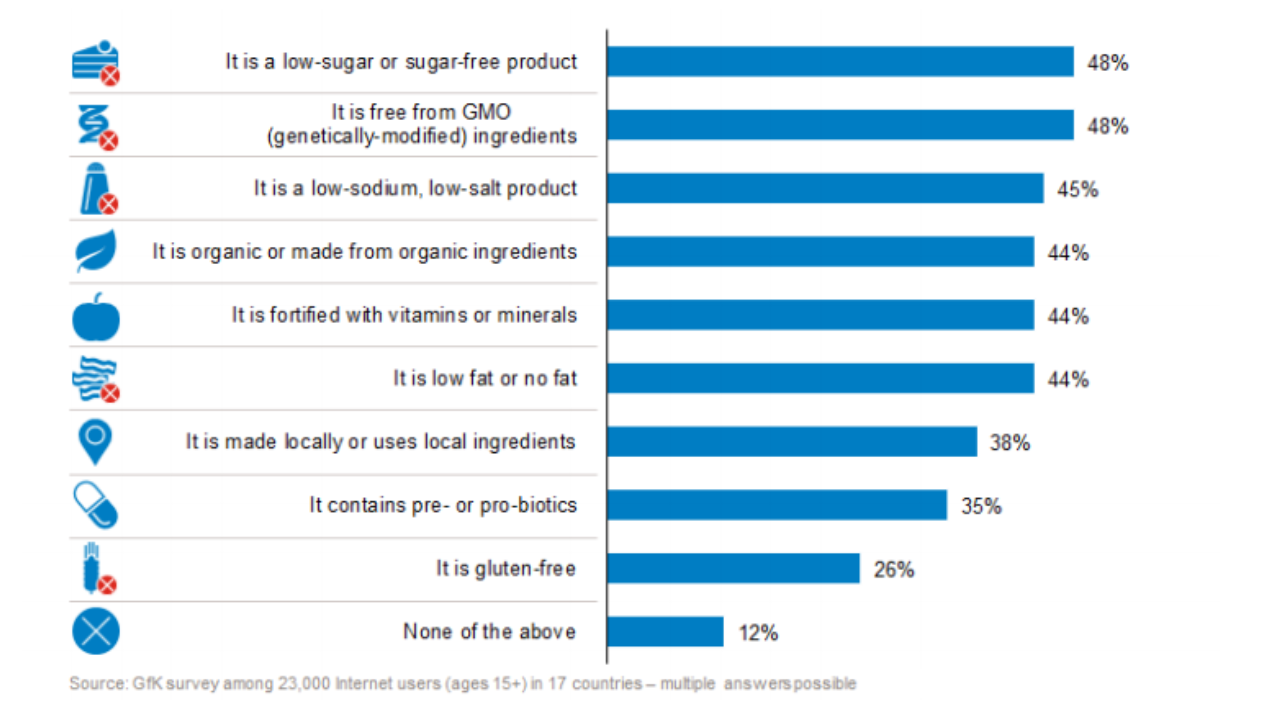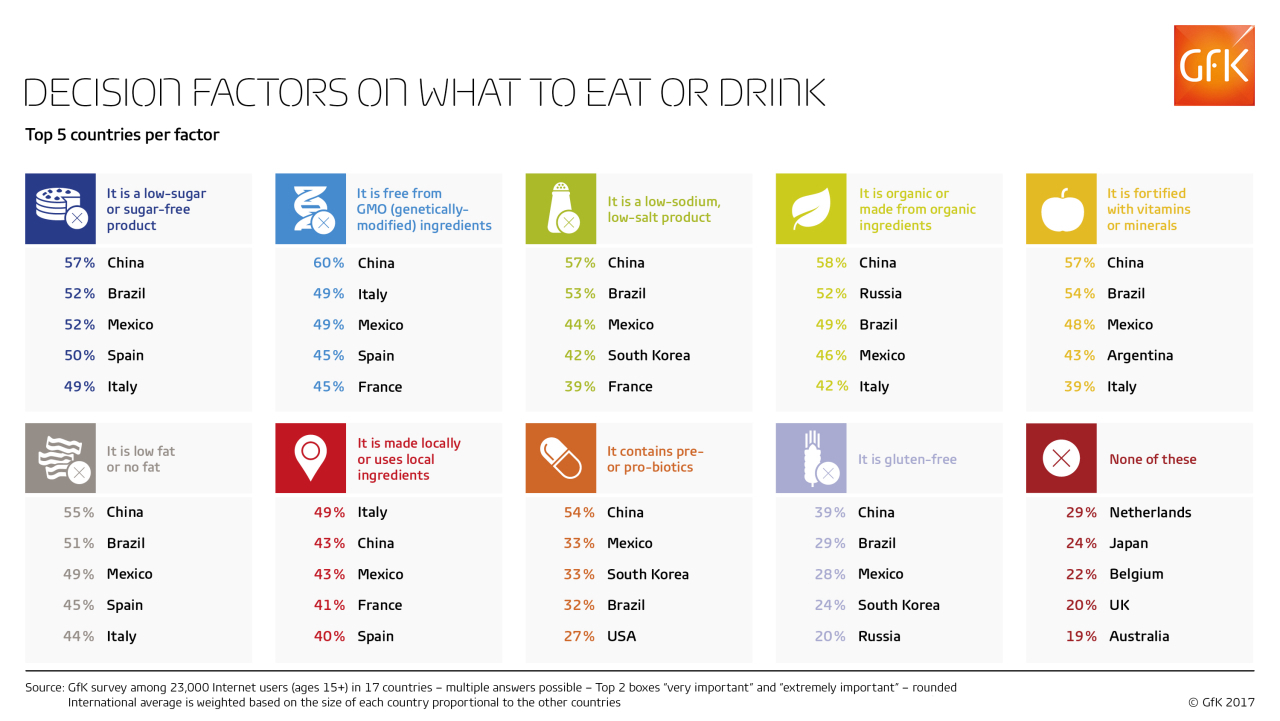Low-sugar and GMO-free are top factors when deciding what to eat or drink, according to the results of our international online survey of 23,000 consumers. Asked how important certain factors are when deciding what to eat or drink, nearly half of the study’s participants (48%) responded that “low sugar or sugar-free“ and “free from GMO ingredients“ are very or extremely important factors.
These factors ranked as the highest in importance from a given list, followed by “low-sodium, low-salt“ products (45%). Also listed as very or extremely important were products that are organic, products that are low fat or no-fat, and products that are fortified with vitamins or minerals (44%). Rounding out the list were products that are made locally or use local ingredients (38%), products that contain pre- or pro-biotics (35%) and products that are gluten-free (26%).

Differentiators among survey respondents
Age played a significant role in the results, with food and drink shoppers aged 30-39 years old being the most selective amongst all age groups, and those under 40 years old placing more importance on organic, pro-biotic, fortified and gluten-free products.
When looking at income, people from high income households set consistently higher importance on all the factors, especially products that are GMO-free (55%), low sugar or sugar-free (54%) and low sodium or low salt (52%). Low income households ranked the factors in a similar order of very or extremely important, but at a significantly lower percentage.
Out of 17 countries surveyed, China was the most selective on what to eat and drink, with the highest number of respondents for top levels of importance on eight out of nine decision factors. The below chart shows the top five countries per factor, with China giving way to Italy only in importance of food and beverage products that are “made locally or uses local ingredients”.
 With access to this kind of wide-ranging survey data, food and beverage brands are able to truly listen to the consumer and understand their individual market needs. By combining these self-reported insights with data from areas such as point of sales tracking, consumer panels and geo-marketing, we can begin to see the full picture around what consumers do, say, and think on their trip to the grocery store or the vending machine.
With access to this kind of wide-ranging survey data, food and beverage brands are able to truly listen to the consumer and understand their individual market needs. By combining these self-reported insights with data from areas such as point of sales tracking, consumer panels and geo-marketing, we can begin to see the full picture around what consumers do, say, and think on their trip to the grocery store or the vending machine.
About the study
The survey question asked, “When deciding which food or beverage product to eat or drink, how important are the following in making your decision?”, with options listed as It is organic or made from organic ingredients; It is made locally or uses local ingredients; It is a low-sugar or sugar-free product; It is low fat or no fat; It is a low-sodium, low-salt product; It is fortified with vitamins or minerals; It contains pre- or pro-biotics; It is free from GMO (genetically-modified) ingredients; It is gluten-free. GfK interviewed 23,000 consumers online in 17 countries in the summer 2017. Data are weighted to reflect the demographic composition of the online population aged 15+ in each market. The global average given in this release is weighted, based on the size of each country proportional to the other countries. Countries included are Argentina, Australia, Belgium, Brazil, Canada, China, France, Germany, Italy, Japan, Mexico, Netherlands, Russia, South Korea, Spain, UK and USA.

![Understanding your audience: The power of segmentation in retail [podcast]](https://nielseniq.com/wp-content/uploads/sites/4/2025/07/Podcast-Understanding_your_audience-The_power_of_segmentation_in_retail-mirrored.jpg?w=1024)

